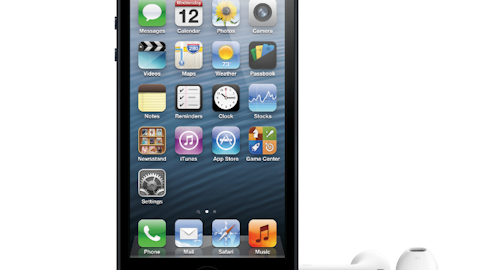If you haven’t been following it, Dell Inc. (NASDAQ:DELL) has been in talks with private equity firms about a takeover. Given the troubles the firm has had lately it might be the best thing for everyone. But will a buyout be a game-changer for the struggling make of personal computers? I have my doubts.
A great deal of the trouble at Dell is being laid at the feet of, well, Michael Dell. Dell famously founded the firm that carries his name in his dorm room in 1984 and has run it ever since. But he’s being accused now of being behind the times; of not being up on the latest trends in computing. That’s taken the firm’s stock from a five-year high of $25.27 to yesterday’s (Jan 16, 2013) close of $12.61. Heck, the stock has gone steadily down since February, 2012 when it topped at $18.16. That’s a 33% drop in 11 months.

First, the trend towards tablet computers is killing PC makers. With Apple Inc. (NASDAQ:AAPL) establishing that tablet computing is not only legitimate with the iPad but also something the average consumer actively desires, the need for PCs is dropping. Apple may be seeing some stock issues right now, but no one can argue that the company, along with Samsung and others, haven’t changed home computing forever. People are a lot more comfortable with their tablets on their laps in the living room than they are sitting at a desk in a home office browsing the web. Apple’s growth has reflected this and Dell has taken the hit.
Even with that, PC makers could point to the office space to claim their continued relevance. Until along comes Microsoft Corporation (NASDAQ:MSFT). As I’ve written before, by putting MS-Office on their Surface tablet, the titan of Redmond is setting itself up to provide tablet computing into offices. The surface can provide it cheaper, faster, and with less hardware headaches that maintaining a fleet of PCs. By equipping a full-sized keyboard along with the Surface, Microsoft is attempting to move into a space that has been, so far, ignored by the tablet revolution. Good for them. It’s going to be interesting to see people running around with tablets at meetings instead of laptops. But it’ll be good for business.
The second issue is hardware. Dell, along with Hewlett-Packard Company (NYSE:HPQ) and others, make their money assembling PCs from components. Guess what tablets don’t need? Apple long established that it liked having total control over the hardware it sold. There weren’t a million Apple clones running around in the 80s and 90s, after all. Only IBM machines did that.
Other tablet makers have picked up on it. Sure, they’re mostly built overseas by third-party sources. But they’re built, marketed and sold as a unit. If you have an iPad or a Surface you know it’s an integrated system that is built to work as a unit. That puts manufacturers of PCs out in the cold, again. There’s no reason to call Dell to have a system built when any big box store can provide a tablet for the asking.





